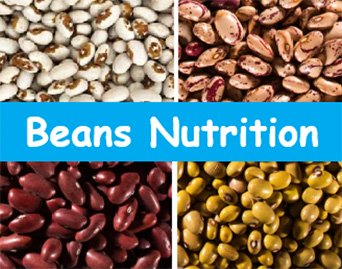Beans: One of the most effective foods for moderating blood sugar.
Beans are edible seeds from the legume family, which includes a wide variety of plants that grow in pods.
Common types of beans include black beans, kidney beans, chickpeas (also known as garbanzo beans), lentils, navy beans, and pinto beans.
Beans are one of the most effective foods for moderating blood sugar levels. Including beans in meals also promotes satiety, helping to reduce overall calorie intake.

Beans and lentils are rich in plant-based protein, dietary fiber, complex carbohydrates, vitamins (like folate), and minerals (such as iron, magnesium, and potassium).
How do beans help in effectively managing blood sugar?
✅ Beans have a low glycemic index foods, making them ideal for people with diabetes or anyone looking to stabilize their blood sugar.
✅ They are rich in fiber, protein, and complex carbohydrates, which help slow down the absorption of glucose into the bloodstream.
✅ Beans digest slowly, which leads to a more gradual rise in blood sugar, preventing spikes and crashes.
✅ According to researchers at Harvard Medical School, consuming beans regularly can improve insulin sensitivity and help regulate glucose levels over time.
✅ Interestingly, the benefits of beans extend beyond the meal they are eaten in. This is known as the “second-meal effect,” where eating beans at lunch can reduce the blood sugar spike from a high-carb dinner. Beans like lentils, black beans, chickpeas, and kidney beans are especially effective.
✅ Additionally, the resistant starch in beans feeds beneficial gut bacteria, which may further support blood sugar regulation- Prebiotic function.
✅ Swapping refined carbs with beans is a simple and powerful dietary change. Overall, beans are a nutritional powerhouse that provide lasting benefits for blood sugar control.
Serving ideas:
Beans are considered a staple food in many cultures around the world due to their affordability, versatility, and nutritional value.
-
People all over the world eat beans because they are cheap, healthy, and easy to cook.
-
You can add beans to soups and stews to make them heartier and more filling. They soak up flavors well, adding both texture and nutrition to the dish.
-
In salads, beans provide a protein boost and make the meal more satisfying.
-
You can also mash beans into spreads like hummus or bean dip, which are great for sandwiches or as healthy snacks.
Read further on:
≺≺ What are the four enemies of blood sugar?
≺≺ How are artificial sweeteners made?
≺≺ What type of exercise is best for lowering my blood sugar?
≺≺ What impact can sitting for long periods have on my health?
≺≺ Does my social circle impact my weight?
≺≺ How toxic are the nitrites used in curing processed meats?
≺≺ How can I reduce the risk of cancer-causing chemicals when cooking or grilling meat?
≺≺ What foods can lower prostate cancer risk?
≺≺ What can I do to supercharge my green tea?
≺≺ Why should I combine Avocados and Tomatoes?
≺≺ What happens to my blood vessels when I gain weight?
≻≻ Watch this page for more such informative articles on Health, Nutrition, and Wellness.
≻≻-Back to Home page.
Further reading (External Links opens in new window):
≺≺- Harvard Health Publishing- Beans may help control blood sugar in people with diabetes
≺≺- MDPI journals – Beans Significantly Lower Glycemic Response Than Commonly Consumed Starchy Foods.

